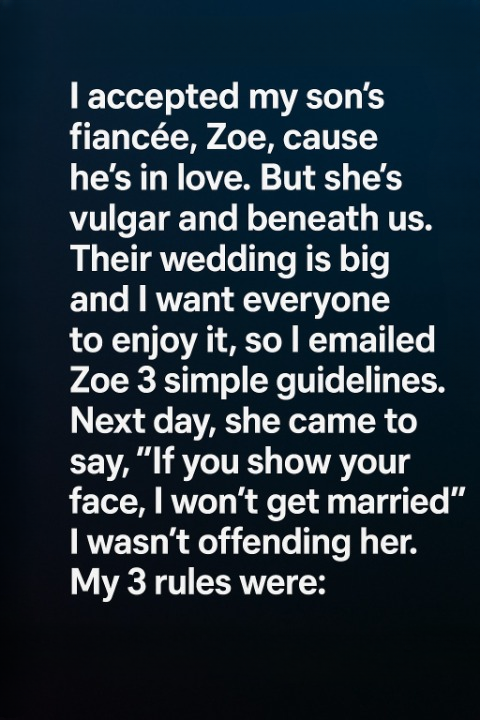Weddings often bring out both love and tension, especially when two families with different values try to merge. When my son announced he was marrying Zoe, I wanted nothing more than to celebrate their happiness. She was bright, confident, and clearly loved him, but I sometimes worried about our differences. Hoping to prevent misunderstandings and drama, I sent her a short email with a few simple suggestions to keep the day smooth and organized. I thought I was being helpful.
The next morning, Zoe arrived at my house upset, eyes red and voice trembling. “If you come to the wedding, I won’t go through with it,” she said. I was shocked — all I had done was offer gentle reminders about communication, kindness, and family traditions. They weren’t rules, just guidance.
I asked her to sit with me so we could talk. I explained my note came from love and experience, not criticism or control. Slowly, her expression softened. She admitted she had felt judged, but once she understood my intentions, the tension began to fade.
By the end of our conversation, we both felt lighter. She apologized for overreacting, and I admitted maybe an email wasn’t the best way to show care. We laughed, reconciled, and started planning together again. When the wedding finally arrived, it wasn’t just a celebration of love between two people — it was a moment of harmony between two families learning to understand each other.
